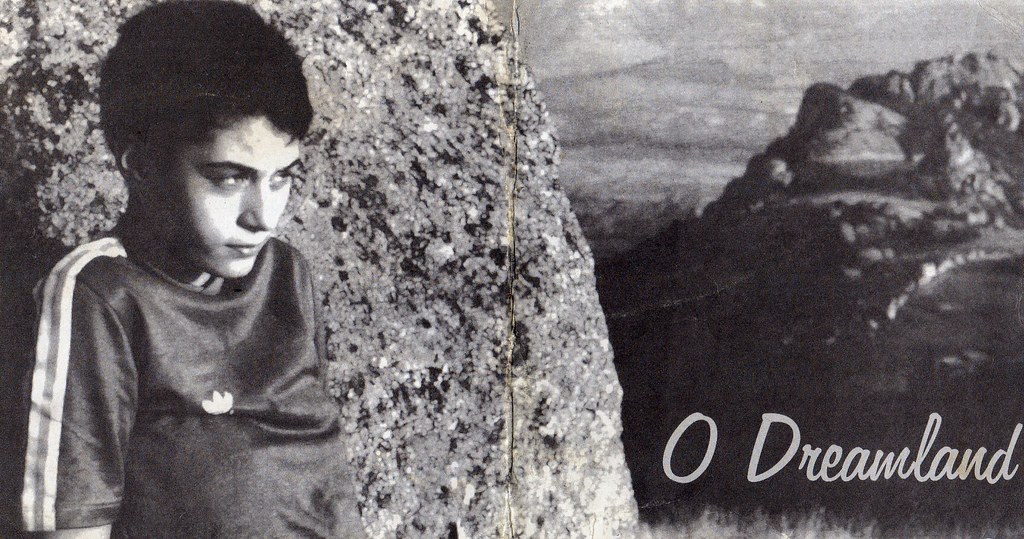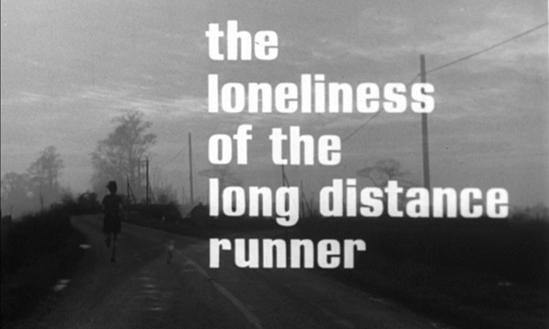Friday, 30 July 2010
Protesting about being allowed to protest.
Firstly, some of their anger is clearly based on a simple misunderstanding: I’m sure a quick chat is all that’s required to point out the ridiculous hypocrisy of loudly and visibly decrying the existence of free speech by the chap in the centre of the photograph. After all, only a genuine idiot would protest about having the right to protest. So that’s good. Easily cleared up.
Also, at first glance I thought the placard on the right of the picture was announcing the arrival of the “fanatics”, which didn’t sound at all promising and would be a genuine cause for concern, but I was wrong. Evidently at some point over the next few months or years we are going to be visited by “the Fantastics”. I don’t know who they are, but I think they sound like fun:
Thursday, 29 July 2010
O Dreamland
All I need to know is that the image itself is beautiful and evocative and suggests too many scenarios and stories to recount. The words have no origin for me, so they suggest something different every day - A delicious slumber, an unattainable ambition, a cruel joke. The figure is sometimes a boy, sometimes a girl, sometimes waiting, sometimes escaping. The hills and the landscape are real today, but might all be in the child's imagination tomorrow.
I had this image enlarged from the scrap of paper I found in the dust, and it is now framed and hung and part of my daily life. It is a thing I love without understanding.
If anybody knows what this is, where it came from, what it means, please don't tell me:

Wednesday, 28 July 2010
No Ball Games
Again, as with my career in goalkeepery, this was perfect for a young aesthete such as myself. Firstly, it was a reasonably safe option. There was very little danger of being tackled, and still less danger of being knocked out or impaled by a badly aimed projectile.
It also afforded ample opportunity to let my thoughts rise above the mundanity of everyday school life, and tackle the real issues: Can Mark Mitchelson really arrest me just because his Dad is a policeman? Will I get into trouble if I go the Long Way Home tonight? Is it true there’s a school in America where you don’t have to do any work?
I had done it again. I’d found a sport that allowed me to ponder life’s great mysteries, to extract myself from the unseemly business of being about 13. Not for me the painful bewilderment of being hit in the face by a size 5 mouldmaster football. Not for me the missing teeth and brutalised shins of a hockey team changing room. Never for this thoughtful child the twisted human carnage of an adolescent rugby scrum.
And crucially, as with keeping goal, my newly adopted sport had its place in outsider art – as a film that would for years allow me to pretend I’d read the book of the same name. It completely validated my choice and confirmed my long held belief - that I was a misunderstood antihero. From assembly until lunch. Every Thursday.

Tuesday, 27 July 2010
Albert Camus, Peter Handke, Erland Tangen.
In some ways I was a late developer. In others I was an old head on young shoulders, setting myself up for a future as a self-regarding gobshite with aspirations of poetic and artistic grandeur. I think this is best summed up in my choice of sports - more specifically school sports. I was a child who, even as the Savlon was applied to the latest grazed knee, always had one eye on his memoirs.
At the age of about 7, there was a decision to be made as to what kind of sport I would subject myself to: I could have chosen hockey, but those sticks didn’t seem to have much give in them. Rugby always looked to me like a game being played by far too many people at once, on the same pitch. So football it was. But not for this child the camaraderie that comes of pulling on the same shirt as all your tiny team-mates, nor the concerted everyone-running-after-the-ball tactics, as drilled into us by our foul-mouthed and foul-tracksuited manager. I wanted to be the goalkeeper. "It was good enough for Albert Camus", I’m sure I thought, "so it’s good enough for me". Naturally too, by that age I had already enjoyed Peter Handke’s excellent novel about murder and the dilemmas of free will "the Goalkeeper’s Fear of the Penalty Kick", so really it was a no-brainer.
Then came four years of standing alone in the pouring rain, ignored as my team-mates celebrated each goal, vilified for each one I conceded. Four years of staring into space while I tried to invent lyrics to go with the Superman theme tune. Four years of standing exactly in the middle of the goal because Princess Leia would be executed if I didn’t. Four years of being caught unawares by lightening-fast attacks while I was figuring out whether I’d prefer to be Batman or Robin at playtime on Monday. Four long years, in which time I think Cults Primary School won about three games.
As an aside, special mention should now go to Erland Tangen, a slightly odd Norwegian boy who scored an absolutely spectacular goal against me in my second season. A right-footed volley from the edge of the box, which fairly thundered into the roof of my net. It was like a proper grown-up goal, and would have been goal of the season had Tangen not been one of our own defenders trying to make a clearance during what became a 7-0 defeat.
But then came the step up to the Big School, where the team’s manager had it all wrong. He made no mention of the importance of a goalkeeper letting his thoughts wander all over the place. Nothing about cultivating an air of aloofness that would stand me in good stead for my adult years. He wanted his ‘keeper to pay attention, bump into people, get in the way of the ball, even catch it. My goalkeeping career was over.
Monday, 26 July 2010
Vampires, Castles and Cocktail Parties.
I recently finished reading Bram Stoker’s Dracula. Loved the first half, where not a great deal happened but it was creepy and there was a sense of impending doom. Wasn’t too fussed about the 3rd quarter where nothing really happened and the doom seems to stop impending. And then really didn’t think much of the last quarter, when everyone spends the whole time congratulating each other on their bravery, their manners, their fastidiousness, and proclaiming their love for one another. And then they find and kill the Count literally in the final 2 pages. I can’t help but feel that Stoker ran out of story at about page 200 but had promised himself it would be 400 pages long.
One of the places thought to have inspired Bram Stoker to write Dracula, and certainly an evocative location in its own right is Slains Castle, a few miles north of my home town of Aberdeen. Stoker spent time here as a guest before starting the novel, and few places have made such an immediate and lasting impression on me – The bleakness of the setting, the precipitous cliffs and the hollow sadness of the building itself. Even though it dates back to the 16th Century the more recent work left it looking like a late 19th early 20th Century stately home, and the ruination always seemed to carry echoes of week-long cocktail parties and late-night music – The chatter of guests dancing into the darkness of the First World War and everything that would mean for their way of life (the owners had to leave and remove the roof to avoid taxes by the mid-1920s). The ruins themselves won’t carry this sense of melancholy for long though, as the site is braced for redevelopment, the nature of which I dread to imagine. I love the place.
Slains castle in its heyday:

...and today:

Sunday, 25 July 2010
Death, maps and books
I have spent the past year or so watching more costume dramas than is probably healthy, and yet healthy is exactly how it has made me feel. All these depictions of 18th and 19th Century England have served to emphasise what an absolute pain in the backside it must have been living in an age when people died at the drop of a hat.
Today, if we go two or three weeks without hearing from a particular friend, the worst we are likely to assume is that they have lost their phone or are busy with work. 150 years ago there was a very real possibility that it would be because they were dead. People died all the time.
And of everything. They died of colds. They died of fright. They died of toothache. They died of headaches. They died of broken hearts. It must have made it hard to make plans, and I would imagine the phrase "if I’m still alive" was used a great deal more than it is nowadays.
I write this having just returned from the British Library’s Magnificent Maps exhibition, which was predictably ace. There were more women there than I had expected, as I’d always presumed maps to be a peculiarly male interest, in the same way that directions and preferable routes from A to B via C are a default conversation topic for all men struggling for common ground, so to speak. I went on my own because I had presumed nobody else in their right mind would have fancied it, but it now turns out that there would have been several candidates had I only had the strength of my convictions. Mind you, if I’d gone with someone else I wouldn’t have felt as comfortable spending half an hour playing with the big magnifying glasses they had for enlarging the computerised copies.
Yesterday was a victory for second-hand bookshops over common sense, as I bought the following:
A history of the American Civil War by Shelby Foote,
A Short History of Africa by Roland Oliver
Martin Amis’ the Moronic Inferno,
Simon Winchester’s A Crack in the Edge of the World about the SF earthquake of 1906,
I Shall Bear Wintness a jewish memoir of nazi Germany by Victor Klemperer
Sebag Montefiore’s gimungous biography of Stalin,
For Love and Courage, a collection of First World War correspondence from the front,
Collected stories by M.R. James,
and something called Within the Context of No Context by George Trow, which looked amusing.
And all that because we happened to “pop in on our way past” a small bookshop with 5 minutes to kill on our way to afternoon tea. I don’t know where we’ll shelve them, and I’ll be lucky if I’ve read that lot before Christmas. On the plus side, at least the 21st Century has given me a decent chance of living that long.
Thursday, 22 July 2010
Always Stick with your First Answer.
I had said that would be the case, but allowed myself to be dissuaded by my very good friend Graeme, who said "no way, you’d get tired and nod off before you died". It was one of those statements that is impossible to argue with at the time, despite it completely ignoring the premise of the question. The correct response would have been "yes, but if you were unable to nod off, if you were denied sleep...". My actual response was
[short silence]
"...aye, obviously."

The record for the longest scientifically verified time anyone has gone without sleep is held by a man called Randy Gardner, who absolutely positively has to be from the USA. This has prompted me to google the name "Randy Mann" of which there appear to be thousands, all in the US. No doubt Americans would redress the balance by laughing at all the people in the UK called Horny, but there aren’t any.
Wednesday, 21 July 2010
On Dreams and Socks
We were experiencing some sort of environmental catastrophe whereby the weather got worse and worse, and that was about it. Set in my hometown of Aberdeen (thus rendering the incredibly shit weather perfectly plausible), the lowest stratum of cloud was shooting across the sky super-fast and the wind was creating a deafeningly loud whistle, all of which looked and sounded impressive but in the context of the dream was bad news. My Dad got his hands on a rocket launcher but I don’t remember how that was going to help matters.
It was faintly disappointing to wake up and find that in fact my father hadn't tried to save the world by firing missiles at the weather.
If I could order dreams in advance, then tonight I would have a long and vivid dream the moral of which would be unavoidable - Always pay attention to what happens at the bottom of your legs if you put your socks on after you put your trousers on. Because this morning I did not pay attention and arrived at work with one trouser leg tucked into my sock.
So all the way in to work this morning I was one of those people that you see on your way in to work in the morning, and you look at them, and you think "come on mate, make an effort".
And with that, he finished his first ever blog entry.


